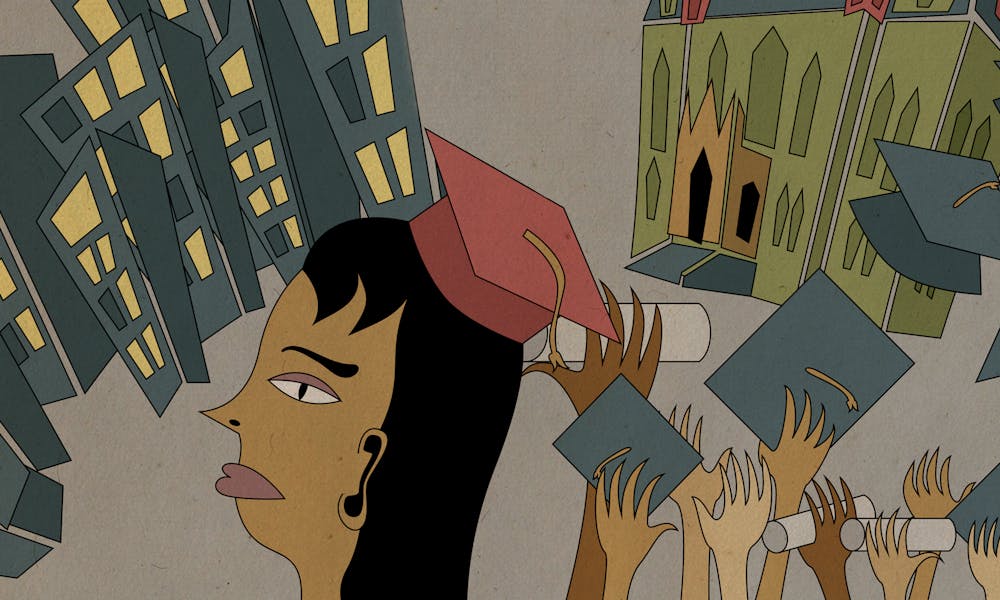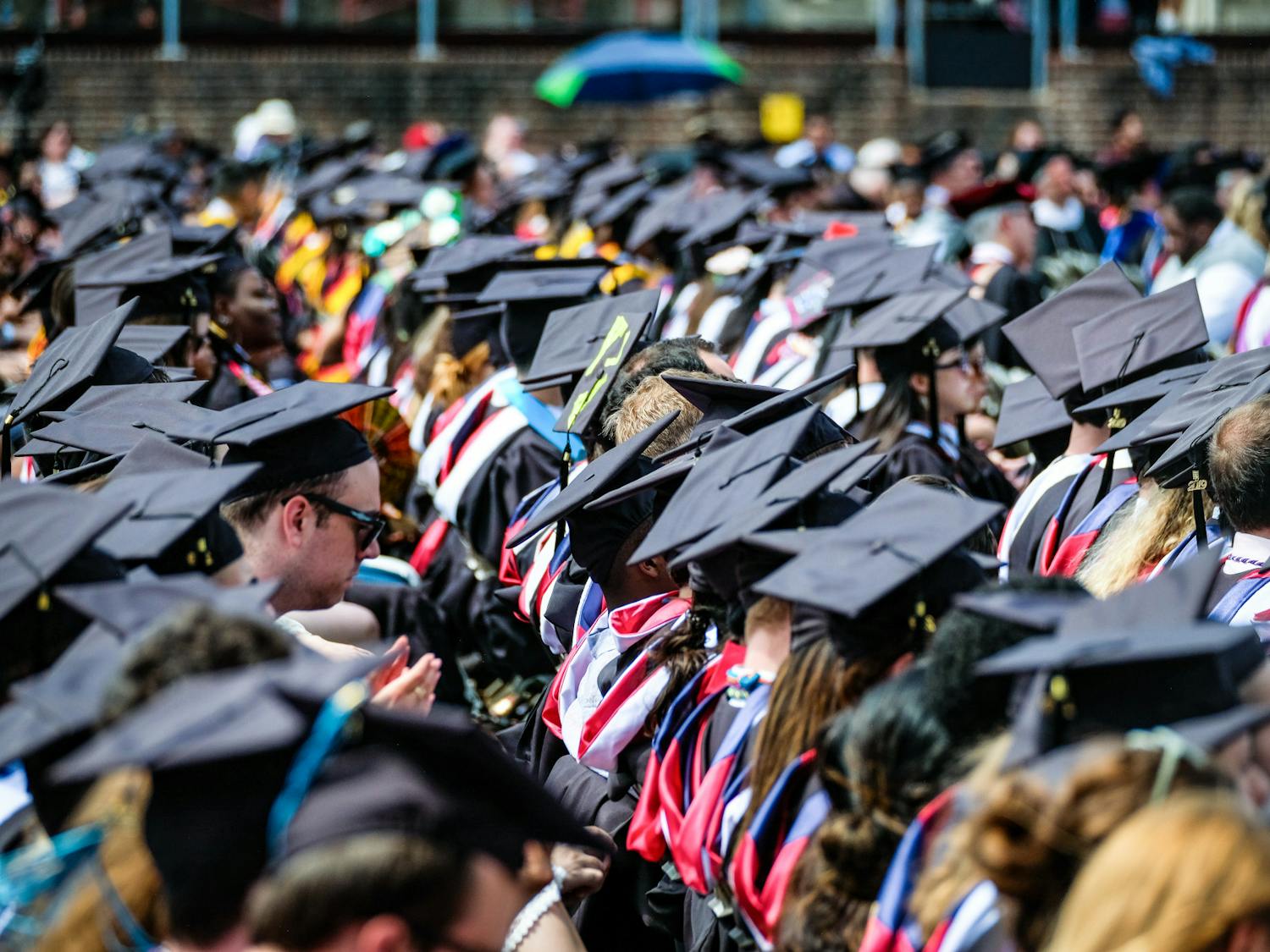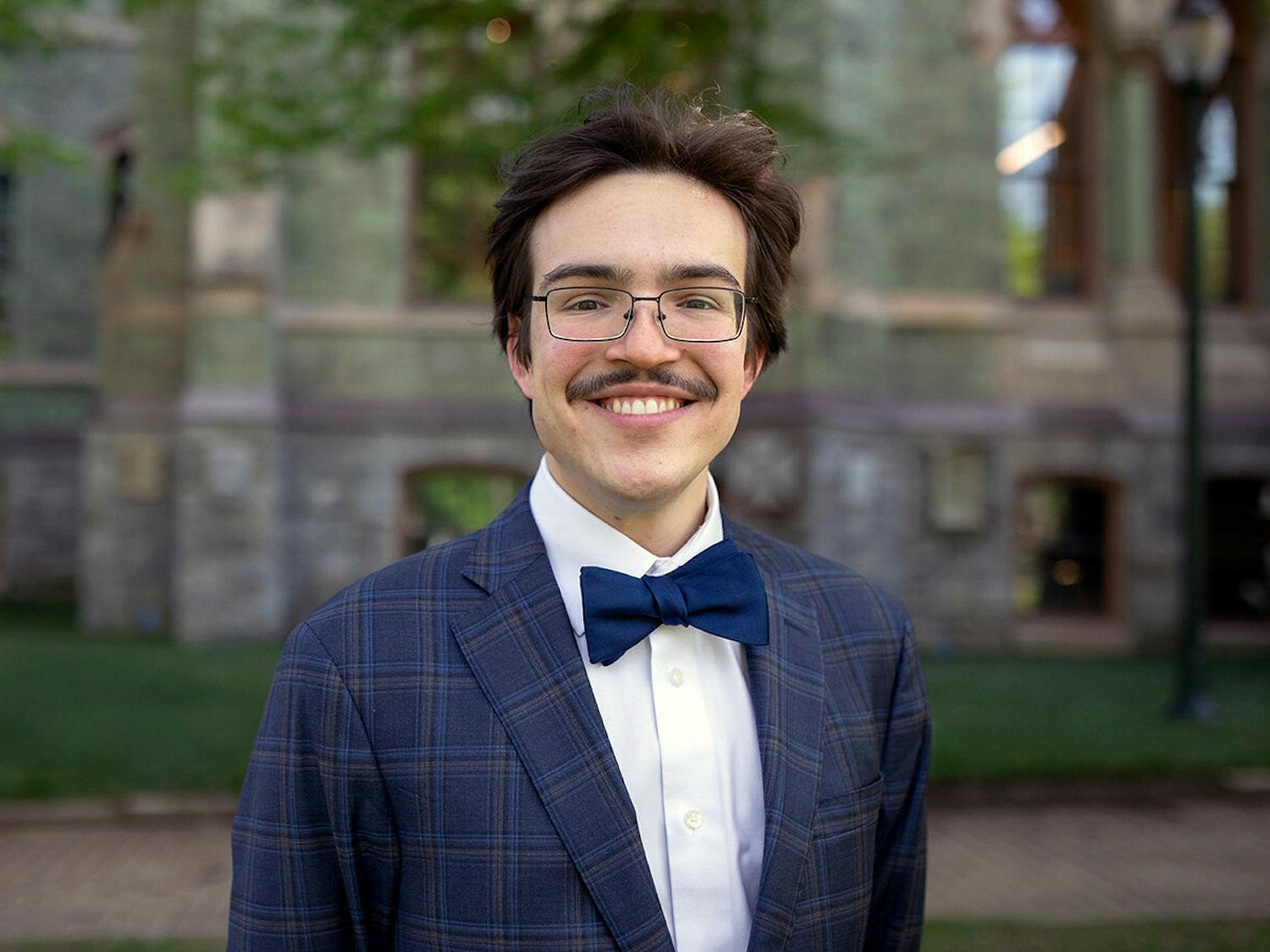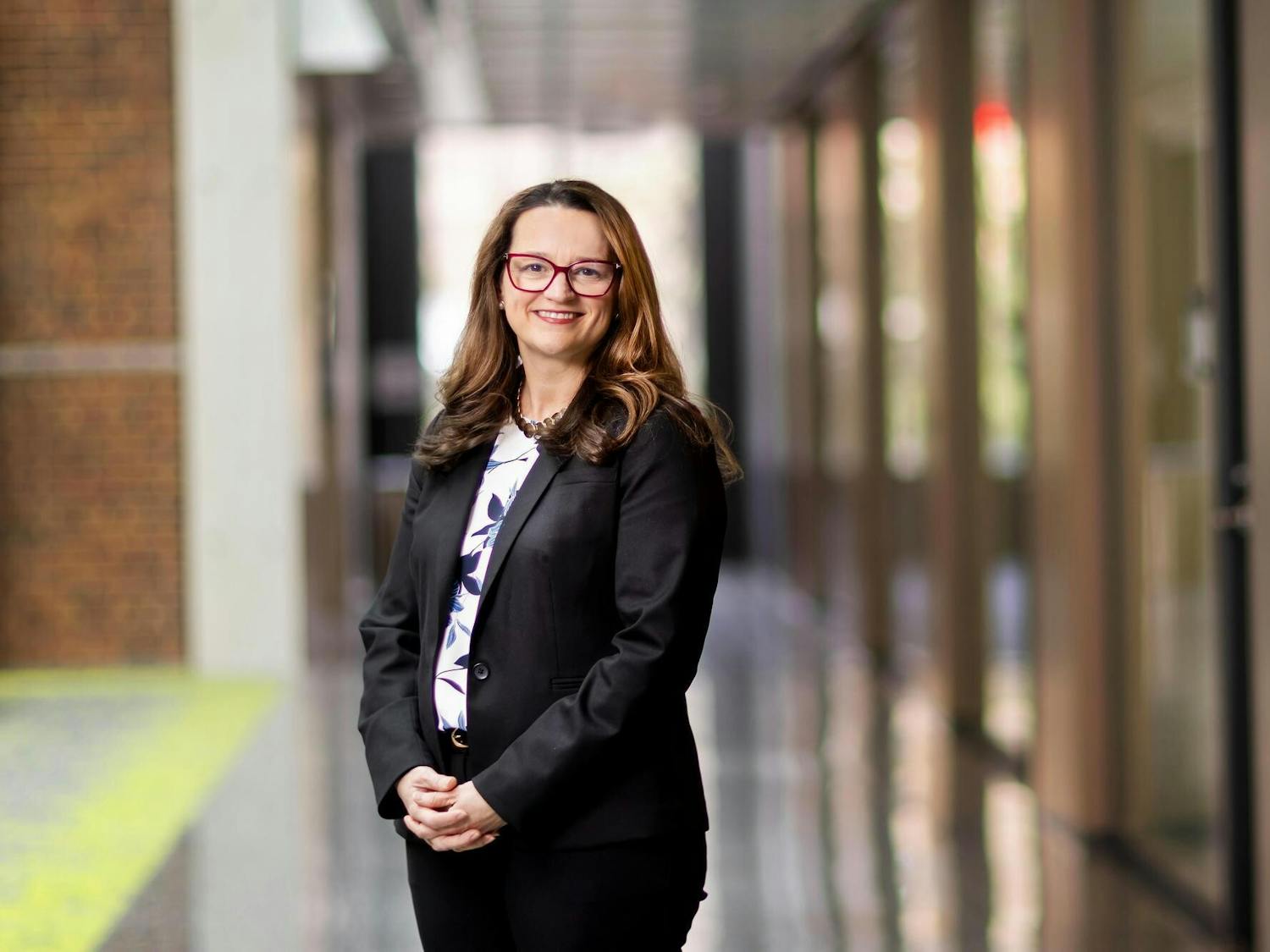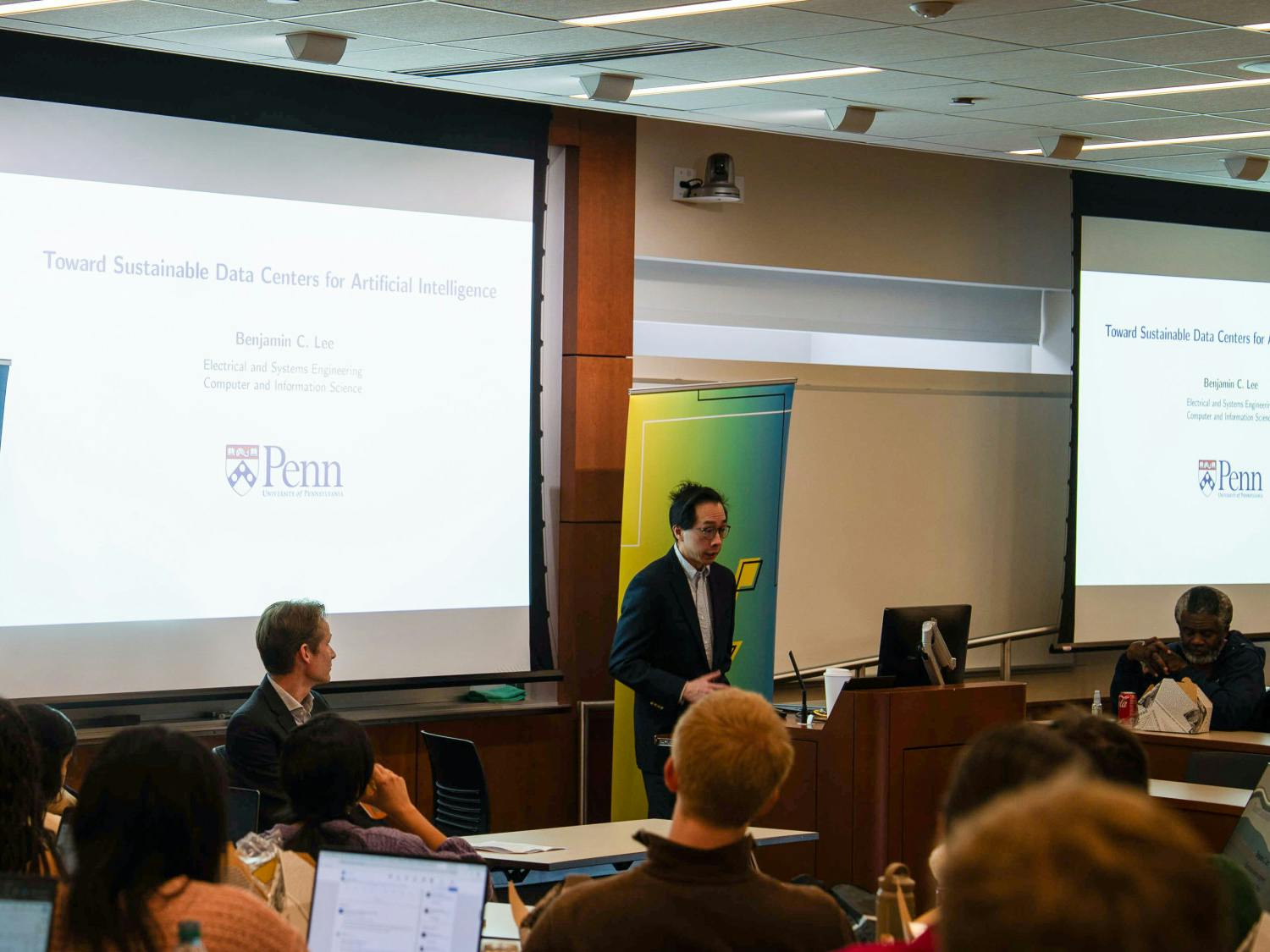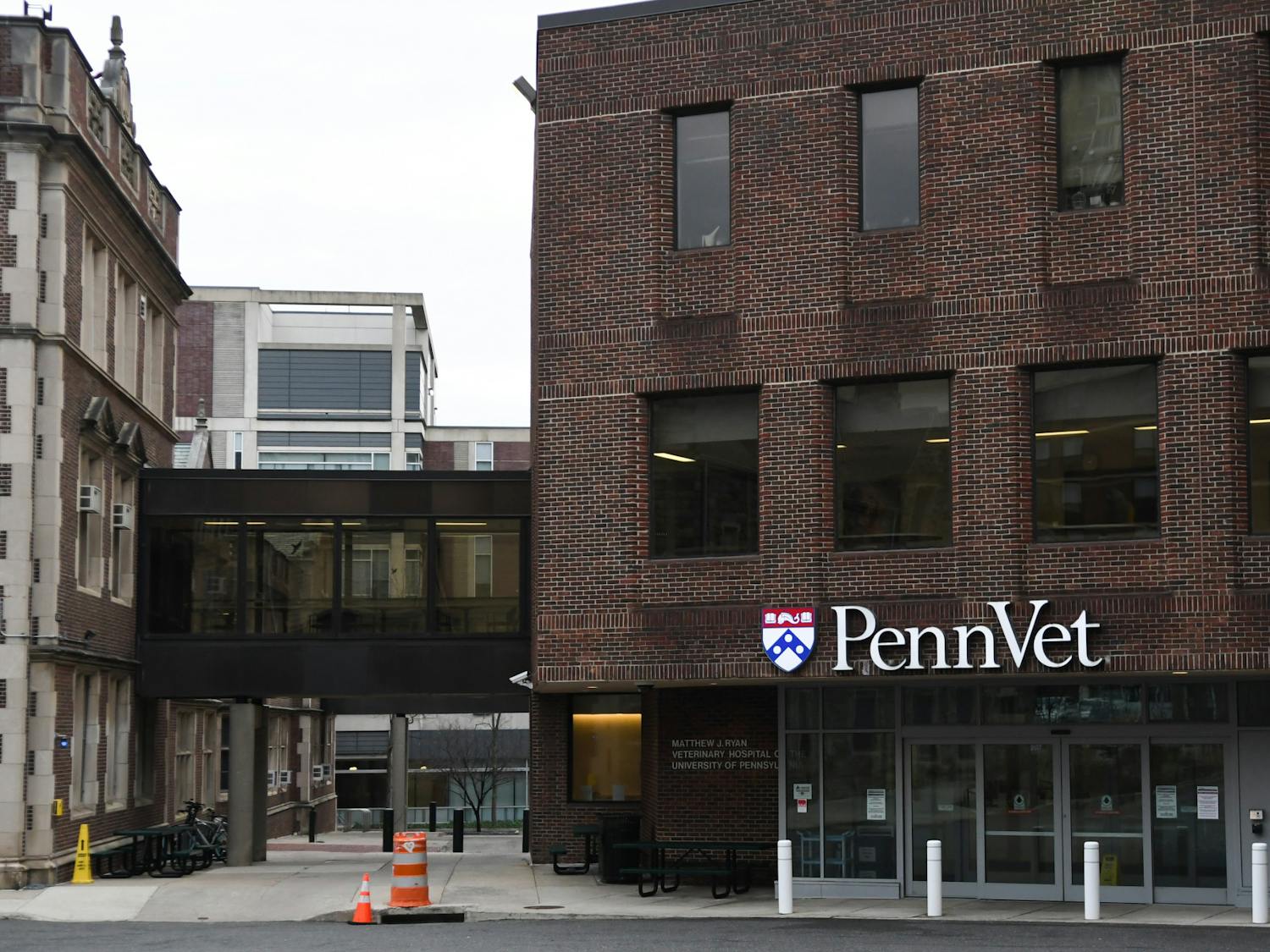Amid the coronavirus pandemic, a faltering economy, and academic hiring freezes, Penn students entering the workforce are facing an uncertain future.
Many seniors and graduate students find themselves looking for jobs in a poor economy with high unemployment due to the pandemic. Like many universities, Penn announced earlier this month that it would institute a hiring freeze for fiscal year 2021 to mitigate financial losses amid the pandemic. Coronavirus has hit industries ranging from entertainment to retail to academia, leaving students scrambling to navigate an unpredictable job market.
College senior Serena Miniter had hoped to find work in the entertainment industry after graduation, but the pandemic has put her job search on hold. Miniter said television shows and movies have delayed filming and employers have canceled or postponed job interviews due to coronavirus.
Miniter had planned to go to Los Angeles for job interviews over spring break, but canceled the trip because of coronavirus concerns. She also considered moving to Los Angeles for work after graduation but now plans to stay at home in New York City for the time being.
Miniter said she spends her time outside of class work catching up on current television shows and movies and working on screenplays while her search for a job remains in limbo.
"Everything is very much up in the air right now," she said.
Fifth year Ph.D. business accounting Wharton student Felipe Flores-Golfín said he is on track to complete his program in a year, after which he wants to become an economics professor. He said he anticipates that finding a job at a university will be difficult, as many universities have instituted hiring freezes.
Penn's hiring freeze for the 2021 fiscal year will apply to all positions except grant-funded positions approved by the “highest level of the School/center” to reduce costs. Other efforts to reduce costs include a limited merit increase program which will prevent employees with salaries above $70,000 from an annual wage or stipend increases, restrictions on overtime work, and the elimination of mid-year salary adjustments.
RELATED:
Penn offers limited summer work-study program amid coronavirus pandemic
Gutmann criticizes U.S. for ‘striking lack’ of global leadership during coronavirus course
Flores-Golfín added that even after universities lift hiring freezes, Ph.D. students will enter a more competitive field with higher demand for professor positions. Flores-Golfín said that as institutions like Brown University and Stanford University have instituted hiring freezes for the next year, schools with smaller budgets will most likely follow suit.
“For anyone wanting to go to academia, it's probably going to be a little bit tough,” Flores-Golfín said.
He added that students like him will likely turn to work outside academia such as the Federal Reserve, consulting firms, or technology companies like Uber, Google, or Facebook.
“[These jobs] are very different from the lives that every single person that started a Ph.D. thought they were going to have, but they're pretty good options,” Flores-Golfín said.
Third-year organic chemistry Ph.D. student Borna Saeednia said that while he still has approximately two more years at Penn, he is concerned about finding a job after earning his Ph.D. degree due to the current hiring freezes and economic downfall.
Saeednia said he also fears, as an immigrant from Iran, that tighter immigration restrictions during the pandemic may limit his ability to finding jobs after graduating.
President and 1968 Wharton graduate Donald Trump signed an executive order on Wednesday limiting immigration in order to “ensure that unemployed Americans of all backgrounds will be first in line for jobs as our economy reopens,” CNN reported.
Saeednia said the shutdown of laboratories on campus has put him and his classmates approximately two months behind on their Ph.D. research. Saeednia added that because companies in financial stress often cut the budgets of research and development departments first, chemistry Ph.D. students will have a more difficult time finding jobs in their field after graduation.
College senior Jacob Hershman said the uncertainty about employment and the economy worries him and his classmates as they prepare to graduate.
“I think for a lot of us, self-sufficiency and navigating a professional landscape, irrespective of additional economic turmoil, to the added circumstances, are both sort of conceptually daunting,” Hershman said.
Hershman said while his ideal job is working in government or environmental law, he was also considering entering Philadelphia's service and retail industry after graduation. The pandemic, however, has hit the industry, including restaurants, especially hard and will not be feasible to enter upon graduating, he said.
“I still wish that things will just revert back to usual, whatever that is," Hershman said. "And I don't know if that's really possible."


